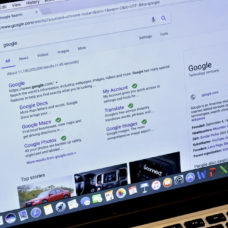Blockchain is mainstream. It is now being tested as a financial system for international commodities trade as the benefits of cryptocurrency become more appealing to banks and distributors alike. As more transactions occur, we can learn a few geopolitical lessons about how and why this is happening now.
Oil And Gas Go Digital
Liquefied Natural Gas facilitates easier transport and is set to be traded to major banks from France and the Netherlands in the next coming months using cryptocurrency.
This will be the second time that a commodity like gas and oil will be traded using Blockchain to manage finances. Both banks and distributors are hoping that its success will be a model that the industry quickly latches onto.
Switching to Blockchain will be a beneficial solution to the arguably archaic methods of delivery and contracts that are involved in commodities trade.
During a talk at the World Economic Forum in Davos, Switzerland, Marcos Dunand, CEO and co-founder of Mercuria praised the benefits of Blockchain technology, estimating that transaction costs with banks will reduce by 30% if banks go along with switching over to Bitcoin.
In the case of the upcoming trade with LNG, this seems to be a next-gen match made in heaven: non-fossil fuel-based energy sources traded on a cryptocurrency exchange.
This is also a great illustration of how we’re passing from the research and development phase to implementing and integrating these technologies to create circular, renewable economies.
Blockchain will soon facilitate the trade of LNG via European banks.Click To TweetRussia Connection
There are several reasons why Blockchain is a better move for the commodities trade industry from convenience to security. Another benefit, especially for members of the EU is that beginning to test natural gas trading will help stimulate trade with Russia, which plays a major role in providing natural gas to Europe as a whole.
All in all, the EU receives the majority of its natural gas imports from Norway, which is the third largest producer in the world, and Russia.
Norway is part of the European Economic Area, which is not the EU, and is geographically closer. But, even back in 2013, Russian exports accounted for almost 40% of the EU’s natural gas.
Regarding natural gas, the EU has a lot at stake.
A significant portion of the population in the EU runs the risk of freezing to death during the winter without Russian natural gas imports. Previously, this has put the EU in an awkward position with Russia over sanctions; however, even when trying to punish Russia, there is little that Russia could do to limit access to this necessary commodity. After all, Russia’s primary export is fossil fuels, and they need that money.
Incidentally, France, one of the countries spearheading the LNG Blockchain trade test, has actually decreased the amount of Russian natural gas imports in recent years by offsetting these supply options with Norwegian and Algerian imports.
However, France actually has significant shale deposits. It may just be positioning itself to be a major player in the natural commodities and Blockchain trade alongside Russia.
Russia’s central bank, the Bank of Russia, has jumped on the cryptocurrency bandwagon, and has already developed a proprietary Blockchain technology called Masterchain, and will almost certainly transition the country’s economy to the FinTech platform.
So far, the currency is used only between banks, but it will open up the Russian’s ability to do business with other international enterprises that are also using the technology.
USAbsent
Did you notice that the U.S has not been mentioned in this article?
The Blockchain-based system was first used to trade crude oil (African crude to Chinese buyer ChemChina) last month; and is now being tested again with European banks.
The U.S. (former) global superpower needs to seriously step it up.
While Asia and even Europe continue to not only innovate but implement those innovations wherever possible in society and industry, the U.S. and its resources remain fractured. Some of the best minds are currently barred from reentering the country, and many others can’t secure funding for comparable research–nevermind decide on appropriate regulations for new technologies like Blockchain (ETF still under review).
As of last year, only 15% of banks have developed Blockchain systems or are experimenting with the technology, so there is sill a way to go. The concensus, however, is that converting to Blockchain will save billions of dollars in the long run, so its only a matter of time.
Bitcoin is slowly but surely going mainstream, as more major companies are begininig to test trade transactions using cryptocurrency. Recently, we published a list of reasons why
Recently, we published a list of reasons why bitcoin is a legitimate currency, and how the cryptocurrency is steadily gaining populatity amongst both individuals and large companies.
All in all, the currency is a safe and stable bet that will also lend new elements to transparency in business deals the likes of which we have not seen before.



















Great Article! I really appreciate this.You are so awesome! This issue has and still is so important and you have addressed it so Informative.
Regards,
JanetRRuggiero